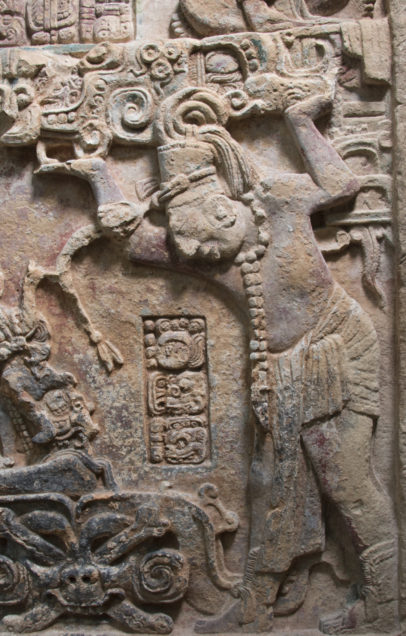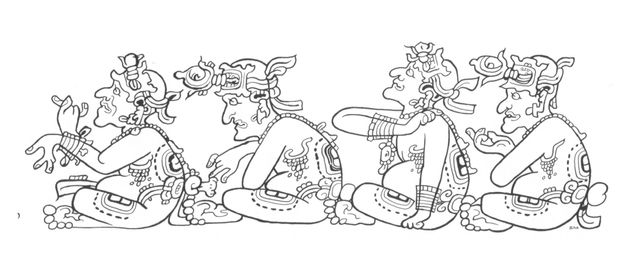Seasonal Gods and Cosmic Kings: The Politics of Belief on a Classic Maya Lintel
Wednesday, November 1st, 5:00-7:00pm: Professor Stephen Houston
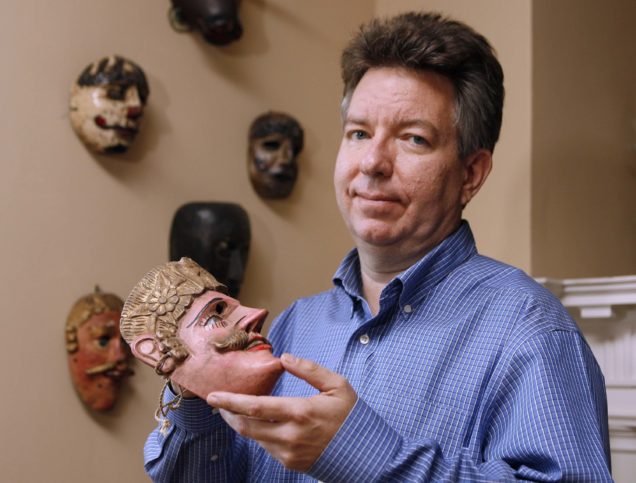
Stephen Houston serves as the Dupee Family Professor of Social Sciences at Brown University, where he also holds an appointment in Anthropology. A specialist in Classic Maya civilization, writing systems, and indigenous representation, Houston is the author of many books and articles, including, most recently, Temple of the Night Sun (Precolumbia Mesoweb Press), The Maya (with Michael Coe, now its 9th edition), and The Life Within: Classic Maya and the Matter of Permanence (Yale University Press), winner of a PROSE Award in 2014. He was co-curator, too, of a major show, Fiery Pool: The Maya and the Mythic Sea, which was exhibited at the Peabody-Essex Museum, the Kimbe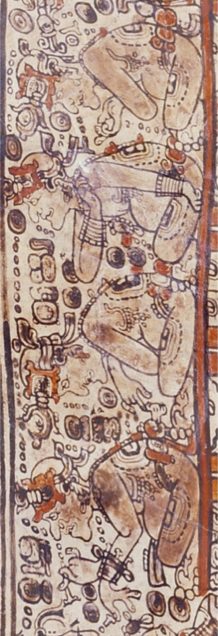 ll, and the St. Louis Museum of Fine Arts. Houston has been honored with a MacArthur, along with fellowships and grants from the Guggenheim Foundation, the National Science Foundation, Dumbarton Oaks, the Clark Art Institute, and the National Endowment for the Humanities; he has also been the Ailsa Mellon Bruce Senior Fellow at the Center for Advanced Study in the Visual Arts, National Gallery of Art. His current projects concern the central role of young men in Classic Maya text and image, the lives and roles of Maya sculptors, and reports on two large-scale excavations, one at the great dynastic center of Piedras Negras, Guatemala, the other, El Zotz, in the same country. In recognition of Houston’s scholarship, the President of Guatemala awarded him, in 2011, the Grand Cross of the Order of the Quetzal, that country’s highest honor. For that same body of work, Houston also received the Tatiana Proskouriakoff Award in 2013 from the Peabody Museum, Harvard University. He is a summa cum laude graduate of the University of Pennsylvania; his Ph.D., awarded in 1987, is from Yale.
ll, and the St. Louis Museum of Fine Arts. Houston has been honored with a MacArthur, along with fellowships and grants from the Guggenheim Foundation, the National Science Foundation, Dumbarton Oaks, the Clark Art Institute, and the National Endowment for the Humanities; he has also been the Ailsa Mellon Bruce Senior Fellow at the Center for Advanced Study in the Visual Arts, National Gallery of Art. His current projects concern the central role of young men in Classic Maya text and image, the lives and roles of Maya sculptors, and reports on two large-scale excavations, one at the great dynastic center of Piedras Negras, Guatemala, the other, El Zotz, in the same country. In recognition of Houston’s scholarship, the President of Guatemala awarded him, in 2011, the Grand Cross of the Order of the Quetzal, that country’s highest honor. For that same body of work, Houston also received the Tatiana Proskouriakoff Award in 2013 from the Peabody Museum, Harvard University. He is a summa cum laude graduate of the University of Pennsylvania; his Ph.D., awarded in 1987, is from Yale.
Professor Houston’s work, entitled “Seasonal Gods and Cosmic Kings:The Politics of Belief on a Classic Maya Lintel” covers a set of monuments that graft Maya dynastic politics onto concepts of sun, moon, seasons, and other solar patterns. Among the most potent images in the Maya world are those that fuse dynastic needs with mythic verities. Kings and nobleman come to discharge, or are seen to discharge, roles and duties set in the remote past. Expansive beings, the gods themselves, undertake tasks that humans can emulate. Through deity impersonation, those same people become one with supernatural figures. A compact illustratio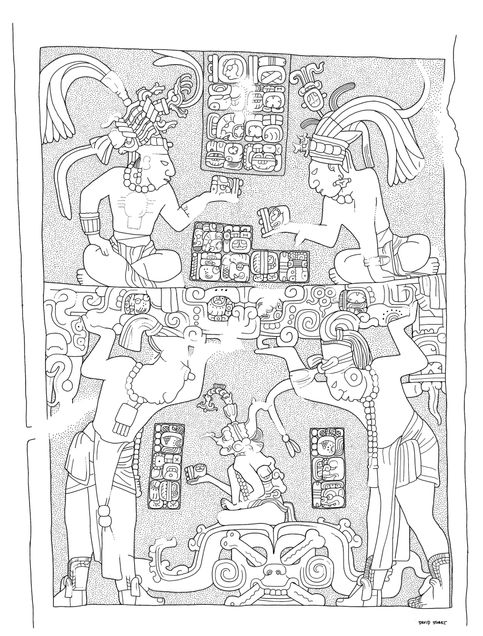 n of these themes is a set of lintels taken over 50 years ago from what is now the Republic of Guatemala. For the most part, the carvings have languished in obscurity, only to re-emerge, after decades, in the recent past. A fresh set of images and technical assays permits a re-examination of their content, in sculptures commissioned for an unknown site under the control of the kingdom of Yaxchilan, Mexico. One carving in particular, to be studied closely here, grafts the supernatural and the political in a work that exemplifies Classic Maya fusions of identity. In doing so, it engenders a sense of inevitability, likening dynastic statecraft, hierarchy, and acts of building to the cosmic order of gods.
n of these themes is a set of lintels taken over 50 years ago from what is now the Republic of Guatemala. For the most part, the carvings have languished in obscurity, only to re-emerge, after decades, in the recent past. A fresh set of images and technical assays permits a re-examination of their content, in sculptures commissioned for an unknown site under the control of the kingdom of Yaxchilan, Mexico. One carving in particular, to be studied closely here, grafts the supernatural and the political in a work that exemplifies Classic Maya fusions of identity. In doing so, it engenders a sense of inevitability, likening dynastic statecraft, hierarchy, and acts of building to the cosmic order of gods.
Flyer to come. Event will be held in the library at the Boston University Elie Wiesel Center for Jewish Studies (147 Bay State Road
Boston, MA 02215) on Wednesday, November 1st from 5:30-7:30. Reception will follow in the Boardroom of the Elie Wiesel Center. All interested faculty, graduate and undergraduate students are encouraged to attend.
